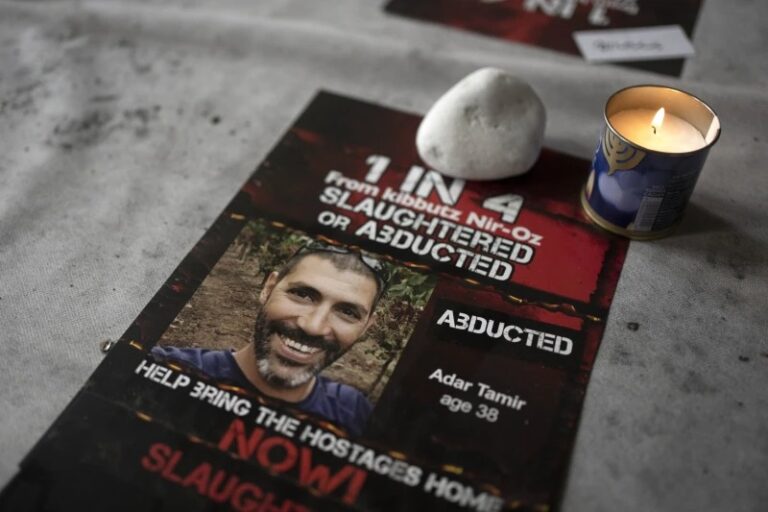By Rabbi Yair Hoffman for 5tjt.com
“I am telling you, your wife is gonna love this Palm Beach timeshare. Just sign here.”
“You are going to love this remote start feature and the six- CD changer.”
“But aren’t CDs going obsolete?”
“Not in the Jewish world.. Sign here please.”
It is all in the fifth chapter of Pirkei Avos. Hafoch bah hafoch bah d’kulah bah. Search in her, search in her, for the Torah contains all. Perforce, it must also contain all the factors that contribute to our state of being able to be convinced to buy something. And it could pertain to anything from getting upgrades we do not need on a car lease to signing a gym membership, to sinking our savings in a timeshare.
SO HOW DOES IT WORK?
How do get convinced into doing these things? What follows is an analysis of six of the main factors that contribute to our tendency to getting influenced and the Torah sources that indicate that factors are both real and devastatingly effective. This is especially true when we face two or more of these factors.
THEY GIVE US SOMETHING
The Pasuk in Devarim (16:19) tells us: “Bribery makes blind the wise and upsets the pleas of the just.” There is a concept called “hakaras hatov” recognizing good which is ingrained into our natures. This is called the reciprocity principle by Dr. Robert Cialdini, a noted expert on the psychology of persuasion. When someone gives us something – we feel an obligation to return the favor. Nowhere is this better demonstrated than Purim. When we deliver shalach manos – the recipient gives one back. By the same token, when a salesman gives us something – we feel an obligation to give something back or to buy something from him. This can also be true in the form of tzedakah. If we asked someone to donate to a charity of ours – and he does – then we feel an obligation to repay the favor. Sometimes it will be in buying something that the person is selling. The Midrash applies this verse to Yitzchok Avinu regarding Aisav. How much more so does it apply to us.
SOCIAL FORCES
We know that Avrohom Avinu underwent ten nisyonos (tests). There is a great dispute among the rishonim and acharonim as to what exactly those ten tests were. All opinions agree, however, that one of those tests was to perform a bris milah on his son. The question can be askedL There are numerous people who have performed a bris on every one of their sons. Does this mean that they are greater than Avrohom Avinu? And the answer is that when Avrohom Avinu did it – no one else was doing it. In our society, any Jew that cares about their heritage performs a bris on his son. The fact that everyone does it makes it like there is no nisayon at all.
RARE OPPORTUNITIES
Shlomo HaMelech said it in Mishlei (9:17) – Mayim genuvim yumtaku – stolen waters are sweet. If the salesperson convinces us that this is the last one left or this sale is for today only – then we get the feeling that we cannot get it ever again. We don’t really care if it is an item that we don’t need – we are taken in by the passion of the moment. “We can’t get this again!” They are giving us the rare opportunity to invest here – we should jump at the chance!
AUTHORITY
We are often influenced by the fact that an authority figure is standing behind it. There is a fascinating Gemorah in Kesuvos (52b) where Rabbi Yochanan regretted his giving his family members advice in regard to a financial dispute between two parties. Although there is an obligation to help out family in legitimate ways, there is a limitation known as “Adam Gadol shaini” – a great man is different. People listen to authority figures and they carry much more influence.
In a similar vein, the Gemorah in Sanhedrin 36a based on a spelling of the word “Riv – argument” – without the yud -states that protocol in a capital case Sanhedrin is that the youngest speaks first so that he not be influenced by the thinking and rationale of the older member of the Sanhedrin and thus not pervert justice.
We see clearly that when an authority figure opines on a matter – it influences others. Thus when an authority figure has purchased that same product – that is enough for people to stop thinking and just go for the product. “If the Rabbi or the Rosh Yeshiva or organization X honored that person at a dinner – forget about it. Let us trust him with this decision.” That is the thinking.
LIKING THE PERSON
Rav Dovid Altshuler (1687-1769) author of the Metzudas Dovid on Mishlei (5:19) explains that when one likes a person – they are liable to do all sorts of things that their intellect would otherwise not have sanctioned. There is a maamar chazal, haAhava mekalkeles es hashurah – love forces a person to act illogically. The Midrash (Bereishis Rabba 55:8) tells us that Avrohom Avinu could have used his numerous servants to prepare his donkey. He did so himself, ostensibly illogically to the outside viewer out of love of Hashem. When we find a person likable, we tend to buy the items that they are offering. A salesman will often go the extra yard for us on things and the result is that we will find that person eminently likable. That likability will cause us to buy or invest in something or do something that we otherwise would not have.
COMMITMENT
There is a fascinating Seforno (Bereishis perek 3) that explains how it was exactly that the serpent had convinced Chava to partake of the forbidden fruit of the Aitz HaDaas. She gave him a foothold upon which he could latch onto – She said to him, “Why should we risk death when we can eat of all of the other fruit trees in the garden?” To that the serpent responded that Hashem only commanded that because He (kavyachol) was jealous of you and He lied about it. Chava had given the serpent a foothold, a beachhead of sorts and the serpent ran with that casting doubts in Chava’s head about the nature of Hashem. By the same token, a salesman will try to get a foothold onto us in the form of some sort of commitment. Once we have committed – that is it for us. We do not rethink it or re-examine it. We have gone with a decision and we end of sticking to it all to the end. At first, the salesman or the person we are giving our funds to may give us a few mini wins – but that ends up getting us committed to invest fully. This is not to say that the investment may be bad per se– but we must always do our due diligence independently and not rely on what the person is saying or anyone else for that matter. Shlomo HaMelech further says in Koheles (2:14), “A wise person has his eyes in his head..” – let us always do our due diligence.
The author can be reached at [email protected]






